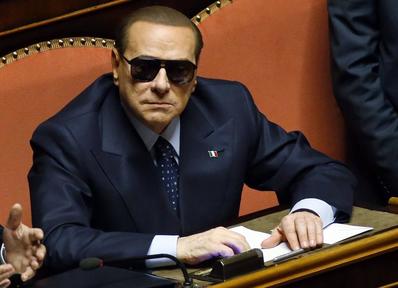On slowly dismantling democracy and other institutions - Karolina Wigura and Jarosław Kuisz in The Guardian:
‘International attention may be focused on Belarus, but in Poland, ministers have just announced an autumn agenda which involves a simultaneous attack on the judiciary and the independent media. It coincides with intensifying pressure on the LGBT+ community in the form of verbal assaults from PiS figures. Demonstrations in cities across the country against the pre-trial jailing of an LGBT+ activist have led not to dialogue, but to the heavy-handed arrests of dozens more.
Yet Duda, who stood on an anti-LGBT+ platform, ended his campaign with a puzzlingly emollient statement. “If anyone felt offended by my action or words during these [last] five years, not only in the campaign,” he said, “please accept my apologies.”
His side ran a brutal campaign. Not a single impartial report about an opposition candidate was carried by the main state television newsprogramme in the run-up to the vote. Duda’s main opponent, Rafał Trzaskowski, the liberal mayor of Warsaw, was routinely dehumanised and lied about.
So why was Duda apologising? Some observers assumed that he wanted to signal a genuine change, a wish to heal the polarisation in Polish society. In our view, Duda’s words carried less the spirit of Gandhi than Oscar Wilde, whose advice was to always forgive one’s enemies, because “nothing annoys them so much”.’
(…)
‘The phenomenon applies as much to Donald Trump, Turkey’s Recep Tayyip Erdoğan or Thierry Baudet, the leader of the populist Forum for Democracy in the Netherlands. Essentially, it means that the media becomes a theatre for an ongoing performance aimed at capturing and keeping the audience’s attention.
Of course, entertainment is nothing new in politics.
The citizens of Rome were distracted by bread and circuses. In the 1990s, prominent politicians started to literally perform (Bill Clinton playing the saxophone), disco dance (Aleksander Kwaśniewski), or simply import showbusiness into politics via television (Silvio Berlusconi). Some academics used the term “politainment” to characterise that era.
Populistainment is a new stage in this process. If democratic politicians in the past used entertainment to warm up their image and appear more human to better to sell their ideas, populistainment turns that on its head. In the populist playbook, entertainment eclipses ideology and such traditional political activity as building party structures. Social media turbocharges the trend and takes it on to another level.’
(…)
‘And the populists’ strategic use of entertainment to win poses a fundamental challenge to defenders of liberal democracy. Calling populists “fascists” and “authoritarians” stopped making an impression on voters long ago. However justified, it became repetitive, uninteresting and therefore, unfortunately, ineffective. If liberal democrats don’t learn about the power of spectacle in the era of dopamine politics, they will fade into irrelevance. And if populism is about creating a spectacle that depicts liberal democracy falling apart, liberalism must provide an alternative spectacle.
And the populists’ strategic use of entertainment to win poses a fundamental challenge to defenders of liberal democracy. Calling populists “fascists” and “authoritarians” stopped making an impression on voters long ago. However justified, it became repetitive, uninteresting and therefore, unfortunately, ineffective. If liberal democrats don’t learn about the power of spectacle in the era of dopamine politics, they will fade into irrelevance. And if populism is about creating a spectacle that depicts liberal democracy falling apart, liberalism must provide an alternative spectacle.’
Read the article here.
We often heard that the liberals, the leftists betrayed their voters by choosing the famous, I should say infamous Third Way, of Bill Clinton, Tony Blair and Gerhard Schröder.
It never convinced me, first and foremost because they did very much do what most of their voters wanted.
But let’s leave this discussion for another time.
Wigura and Kuisz make the point that liberals need to learn how to turn politics into spectacle, they need to learn how to produce ‘populistainment’.
It’s a bit of a defeat I would say, but why not? Democracy is theater, theater has become spectacle, fair enough.
One could argue that the Democrats in the US have been doing this for a long time already.
And if this is the way forward, why is somebody like Merkel, everything but spectacle, highly popular in her own country and in other countries?
I would say that we need to move away from spectacle, and in order to do that we need more politicians who don’t come across as puppets desperately looking for a good director.
The spectacle is just there to hide the lack of talent, the utter emptiness of the actors and their plans.
